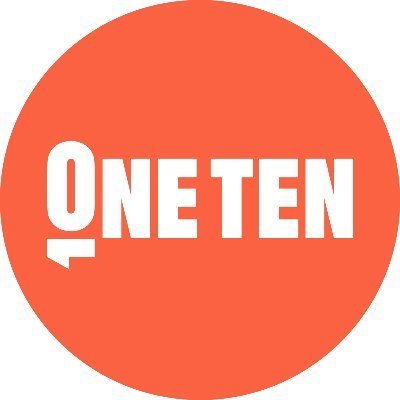Map icons
Public university systems
Public university systems are collaborating to improve credential completion and social mobility by addressing several key imperatives, including equity and learning. The initiative is seeking to shift to a student-centric focus and share ways to teach students by recognizing individual learning and social-emotional needs and advancing equity in academic and experiential curricula.⁹⁹
Twelve states
Twelve states across the nation, from nearly all regions and regardless of political party control, have enacted FAFSA completion policies to require or encourage high school seniors to file the form.⁶⁰ Most states have developed a multipronged effort with statewide outreach, student support, K−12 training, data sharing, and highlighted best practices.
Year Up
Year Up offers a one-year training program with paid internship and support and has been recognized for supporting achievement among Black learners.¹⁷⁸
Boston, Massachusetts
Complete College America
Complete College America created a network of community colleges to align academic programs with workforce needs for Black learners. Participating colleges will share expertise and receive technical assistance focused on workforce alignment, basic needs, and other key topics.¹⁷⁷
Indianapolis, Indiana
California Funders for Boys and Men of Color
California Funders for Boys and Men of Coloraligns leading philanthropic entities with the goal of improving opportunities for Black, Latino, Asian/Pacific Islander, and Native American young men in the San Francisco and Los Angeles communities. The network offers programming and legislative advocacy to remove structural barriers.¹⁷¹
Sacramento, California
Take Off: Institutional Innovations for College Men of Color
Take Off: Institutional Innovations for College Men of Color is a project of the University of Southern California’s Race and Equity Center. The philanthropic-supported project supports 12 community colleges nationwide to bolster initiatives advancing the success of Black learners and men of color.¹⁷⁰
Los Angeles, California
Regional partnerships in the Seattle area
Regional partnerships in the Seattle area focus on advancing Black learner success through data-driven strategies and support from middle school through postsecondary education. In the same region, a Black and Brown Summit, sponsored by community partners, is an annual event designed to empower and motivate Black and Brown young men in high school to excel in academics and strive for excellence.¹⁶⁸
Seattle, Washington
The National Black Justice Coalition
The National Black Justice Coalition is a civil rights organization with a focus on education that is working to end discrimination against Black LGBTQ+ individuals.¹⁶⁷
Washington, D.C
Achieve Atlanta Initiative
Under the Achieve Atlanta initiative, higher education institutions and college access partners support Atlanta Public Schools to provide district-wide college advising to all juniors and seniors.¹⁶⁶
Atlanta, Georgia
The National Cares Mentoring Movement
The National Cares Mentoring Movement seeks to transform the lives of impoverished Black children through a national network of volunteer mentors. An example is the collaboration between higher education and community partners in New York City.¹⁶⁵
New York, New York
The African American Trade Association
The African American Trade Association promotes trade, commerce, economic development, and well-being through education, collaboration, and lucrative partnerships that advance opportunities for Black communities.¹⁵⁸
Denver, Colorado
The Albuquerque African American Chamber of Commerce
The Albuquerque African American Chamber of Commerce focuses on education, advocacy, mentorship, and networking to promote Black- owned businesses.¹⁵⁷
Albuquerque, New Mexico
NAACP
NAACP partnered with Google to expand a high school program preparing students for tech fields. 155 Additionally, Grow with Google supports HBCUs to encourage Black learners to pursue technology fields.¹⁵⁶
Baltimore, Maryland
The Atlanta Wealth Building Initiative
The Atlanta Wealth Building Initiative established a new framework for community leaders, researchers, policymakers, practitioners and philanthropists to advance solutions to build Black wealth in the region.¹⁵⁰
Atlanta, Georgia
OneTen
OneTen seeks to create 1 million jobs in 10 years to unlock opportunities for Black learners and workers. Employers and community partners provide support, training, and hiring to close gaps in the Black talent pipeline.¹⁴⁹
Washington, D.C
The Scholarship Academy
The Scholarship Academy supports Black learners in Georgia, New York, and Washington D.C., helping students from low-wealth backgrounds navigate financial aid and access scholarships.¹⁴⁷
Atlanta, Georgia
The National Action Council for Minorities in Engineering
The National Action Council for Minorities in Engineering offers $3 million in scholarships to underrepresented minorities pursuing engineering.¹⁴⁵
Additionally, the Executive Leadership Council seeks to expand Black executives and offers scholarships to Black learners.¹⁴⁶
Alexandria, Virginia
The National Endowment for the Humanities
The National Endowment for the Humanities, an independent federal agency, supports professional development institutes for higher education faculty. The convenings support higher education faculty from across the nation to deepen their understanding of significant topics and enrich their capacity for effective scholarship and teaching.¹³⁶
Washington, D.C
The Augustus F. Hawkins Centers of Excellence Program
The Augustus F. Hawkins Centers of Excellence Program aims to support centers of excellence at historically black colleges and universities or other minority serving institutions to increase the number of well-prepared educators and teachers of color.¹³⁵
Washington, D.C
The Child Care Access Means Parents in School program
The Child Care Access Means Parents in School program helped 3,300 student parents pay for child care with payments of $385 per month on average. Appropriations for the program have increased from $15 million in FY 2017 to $75 million in FY 2023. In FY 2022, 300 new institutions were awarded $150,000 per year on average.¹³²




















